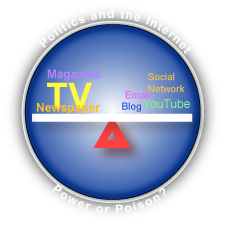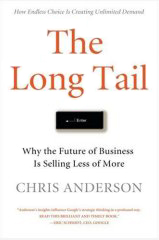 In An Offer You Can’t Refuse, Lydia Dishman interviews CEO Justin Moore, who discusses his business leadership “lessons learned” from watching The Godfather. It’s a solid post, but very thoughtful and insightful comments take it into classic territory. That said, the post didn’t hit the bullseye for our context here—B2B relationship building—so here goes with the pieces I think it missed. I invite you to add yours in comments. In An Offer You Can’t Refuse, Lydia Dishman interviews CEO Justin Moore, who discusses his business leadership “lessons learned” from watching The Godfather. It’s a solid post, but very thoughtful and insightful comments take it into classic territory. That said, the post didn’t hit the bullseye for our context here—B2B relationship building—so here goes with the pieces I think it missed. I invite you to add yours in comments.
[…]
 In Why Lie?, Seth Godin points out that prospects of (B2B) salespeople often lie because they do not want their decisions to be questioned by salespeople: “… when we announce that we’ve made the decision to hire someone else, or when we tell the pitching entrepreneur we don’t like her business model, or when we clearly articulate why we’re not going to do business, the salesperson responds by questioning the judgment of the prospect.” In Why Lie?, Seth Godin points out that prospects of (B2B) salespeople often lie because they do not want their decisions to be questioned by salespeople: “… when we announce that we’ve made the decision to hire someone else, or when we tell the pitching entrepreneur we don’t like her business model, or when we clearly articulate why we’re not going to do business, the salesperson responds by questioning the judgment of the prospect.”
Great insight, but it pre-supposes a lack of trust that is totally outdated and unnecessary. Let’s review how this comes about and how to disrupt the whole cycle.
[…]
 Private equity firms are learning that “private” can be a disadvantage in the era of digital social networks. G7 voters are frustrated by prolonged poor economic performance, falling prosperity and growing income disparities. P/E firms are an all too convenient target, and US presidential candidate Mitt Romney is bringing unwelcome exposure to the industry. There is a strong populist theme to U.S. and European politics, which sets the scene for a prolonged era of criticism, precisely when the industry is struggling, and firms are closing. Private equity firms are learning that “private” can be a disadvantage in the era of digital social networks. G7 voters are frustrated by prolonged poor economic performance, falling prosperity and growing income disparities. P/E firms are an all too convenient target, and US presidential candidate Mitt Romney is bringing unwelcome exposure to the industry. There is a strong populist theme to U.S. and European politics, which sets the scene for a prolonged era of criticism, precisely when the industry is struggling, and firms are closing.
Smart P/E firms will be grounded and strategic about building trust among lawmakers, their publics and other stakeholders, and using digital social networks could play a key role in educating stakeholders and interacting with readers with transparency and principles, thereby building trust and dampening criticism. Specifically, P/E firms should:
[…]
These three examples showed how digitally produced social information could change entrenched human problems like war, excessive punishment and imprisonment and mass death by natural disaster. As such, they serve as examples of widespread change that will occur thanks to social networks and work processes. […]
To fully appreciate how “touch” applies to LinkedIn interaction, imagine yourself as a human brain. Through the centuries, you have evolved, and one of your key survival mechanisms is discerning how much of the truth someone is sharing with you. Hence, you rely on nonverbal communication, which is much more difficult to fake because people are less aware of it than they are of their words. […]
Highlights of Alcatel-Lucent’s recent marketing study of 1,000 social networkers, presented by CMO Allison Cerra at #snc2010: Social networkers are not very social; Heavy users of Web 2.0 will pay for value-added services; Privacy is murky […]
Digital social networks give front row seats in many aspects of human dramas, but few companies or individuals have the understanding of human behavior to appreciate fully what they are seeing. Many executives of commercial and government enterprises perceive “social” behavior as frivolous and discourage employees’ activity in social networks. This exceptional book shows that the separation of “work” and “social” is dangerously out of place today because collaboration produces the lion’s share of business value. To succeed, leaders need to appreciate the importance of social activity in collaboration and productivity, and how digital social networks can increase productivity. […]
Alumni 2.0 is a key component of transitioning to a new employment paradigm by using online social networks like LinkedIn; this post outlines some of its key concepts […]
Conventional Wisdom Scuttled—Disruption Preview—Business in the Batter’s Box
 Barack Obama’s presidential campaign was more than a major social media milestone because it ushered in a new relationship model among leaders and their supporters. Due to social media, an unprecedented number of individuals had a new kind of active, direct role in Obama’s campaign; moreover, I predict that the Obama campaign and imminent administration will change citizens’ and consumers’ expectations of “leader” and “follower” roles in government and business. Amazon.com changed consumers’ expectations about retail in general—information on demand, reviews, unbelievable variety at low prices—and a significant portion of Obama supporters will want to continue their support to “make the change happen.” These supporters will bring their changed expectations of action and collaboration to their vendors. That means your company. Barack Obama’s presidential campaign was more than a major social media milestone because it ushered in a new relationship model among leaders and their supporters. Due to social media, an unprecedented number of individuals had a new kind of active, direct role in Obama’s campaign; moreover, I predict that the Obama campaign and imminent administration will change citizens’ and consumers’ expectations of “leader” and “follower” roles in government and business. Amazon.com changed consumers’ expectations about retail in general—information on demand, reviews, unbelievable variety at low prices—and a significant portion of Obama supporters will want to continue their support to “make the change happen.” These supporters will bring their changed expectations of action and collaboration to their vendors. That means your company.
The Obama campaign is very instructive to business leaders because business customers are changing expectations of their leaders, as we’ll discuss in more detail below. As the Global Human Capital Journal is not primarily focused on politics, I am less interested in the fact that Obama was elected than how he was elected. Moreover, […]
A Must-read Guide to the Importance of Web 2.0 and the Knowledge Economy
 The Long Tail is a watershed book that reflects many of the profound socioeconomic changes wrought by the transition from the Industrial Economy to the Knowledge Economy. The “Long Tail” represents the splintering of the mass market—what is happening, why and how you can thrive in the new era of the niche. Moreover, it shows how the mass market was a temporary phenomenon that developed because niches were not economically viable for producers to address. The Long Tail is a watershed book that reflects many of the profound socioeconomic changes wrought by the transition from the Industrial Economy to the Knowledge Economy. The “Long Tail” represents the splintering of the mass market—what is happening, why and how you can thrive in the new era of the niche. Moreover, it shows how the mass market was a temporary phenomenon that developed because niches were not economically viable for producers to address.
Chris Anderson is editor-in-chief of Wired, and the book has an appreciation for culture, the economics of technology and the importance of innovation. It’s also very well written: Anderson tackles some fairly abstract concepts, but the reader doesn’t trip over them. It’s possible to read the book quickly, but there is plenty of substance for a detailed, reflective reading as well. Difficult to over-recommend!
The Long Tail offers an insightful look into the byte-oriented Knowledge Economy and its movement away from the zero-sum, bits-oriented Industrial Economy—and what this holds for business and culture. The book […]
|
|
 In An Offer You Can’t Refuse, Lydia Dishman interviews CEO Justin Moore, who discusses his business leadership “lessons learned” from watching The Godfather. It’s a solid post, but very thoughtful and insightful comments take it into classic territory. That said, the post didn’t hit the bullseye for our context here—B2B relationship building—so here goes with the pieces I think it missed. I invite you to add yours in comments.
In An Offer You Can’t Refuse, Lydia Dishman interviews CEO Justin Moore, who discusses his business leadership “lessons learned” from watching The Godfather. It’s a solid post, but very thoughtful and insightful comments take it into classic territory. That said, the post didn’t hit the bullseye for our context here—B2B relationship building—so here goes with the pieces I think it missed. I invite you to add yours in comments.
 Barack Obama’s presidential campaign was more than a major social media milestone because it ushered in a new relationship model among leaders and their supporters. Due to social media, an unprecedented number of individuals had a new kind of active, direct role in Obama’s campaign; moreover, I predict that the Obama campaign and imminent administration will change citizens’ and consumers’ expectations of “leader” and “follower” roles in government and business. Amazon.com changed consumers’ expectations about retail in general—information on demand, reviews, unbelievable variety at low prices—and a significant portion of Obama supporters will want to continue their support to “make the change happen.” These supporters will bring their changed expectations of action and collaboration to their vendors. That means your company.
Barack Obama’s presidential campaign was more than a major social media milestone because it ushered in a new relationship model among leaders and their supporters. Due to social media, an unprecedented number of individuals had a new kind of active, direct role in Obama’s campaign; moreover, I predict that the Obama campaign and imminent administration will change citizens’ and consumers’ expectations of “leader” and “follower” roles in government and business. Amazon.com changed consumers’ expectations about retail in general—information on demand, reviews, unbelievable variety at low prices—and a significant portion of Obama supporters will want to continue their support to “make the change happen.” These supporters will bring their changed expectations of action and collaboration to their vendors. That means your company. The Long Tail is a watershed book that reflects many of the profound socioeconomic changes wrought by the transition from the Industrial Economy to the Knowledge Economy. The “Long Tail” represents the splintering of the mass market—what is happening, why and how you can thrive in the new era of the niche. Moreover, it shows how the mass market was a temporary phenomenon that developed because niches were not economically viable for producers to address.
The Long Tail is a watershed book that reflects many of the profound socioeconomic changes wrought by the transition from the Industrial Economy to the Knowledge Economy. The “Long Tail” represents the splintering of the mass market—what is happening, why and how you can thrive in the new era of the niche. Moreover, it shows how the mass market was a temporary phenomenon that developed because niches were not economically viable for producers to address.